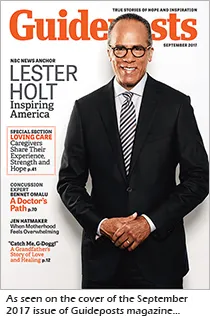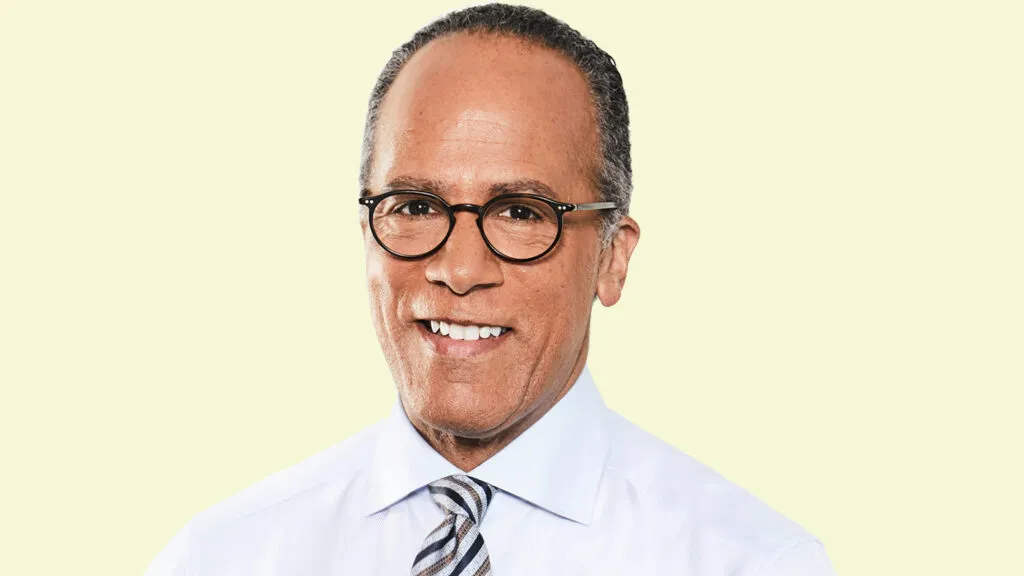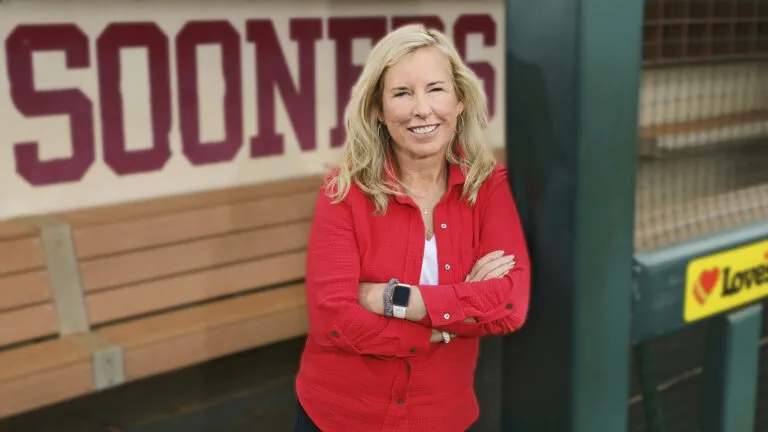It’s a question any person of faith struggles with, not just a journalist or newscaster. You see misery in the world, terrible suffering, and wonder how it can be fair. How can you go on living your life of abundance when others suffer such deprivation? How can some have so little while others have so much?
 My work has taken me to places that have been devastated by war and natural disaster. I’ve stared into the hollowed-out faces of people suffering hunger and thirst. I’ve seen refugees living in abominable conditions. I remember visiting Somalia, where thousands of people were dying of starvation in the midst of civil war. We flew in to cover the story and spent several days on the ground. Then it was time to go. We returned to the States a few days before Christmas, images of the suffering we’d left behind etched into our consciousness. It seemed so unfair.
My work has taken me to places that have been devastated by war and natural disaster. I’ve stared into the hollowed-out faces of people suffering hunger and thirst. I’ve seen refugees living in abominable conditions. I remember visiting Somalia, where thousands of people were dying of starvation in the midst of civil war. We flew in to cover the story and spent several days on the ground. Then it was time to go. We returned to the States a few days before Christmas, images of the suffering we’d left behind etched into our consciousness. It seemed so unfair.
But nothing was worse than reporting from Haiti after its catastrophic 2010 earthquake, in which more than 200,000 people perished. Here was death on a scale I’d never seen before: mass graves, whole neighborhoods leveled, survivors living on the streets and desperate for food and medicine. All of this less than 700 miles away from the richest country on the planet.
My crew and I initially slept in tents on an airfield where we’d erected our portable satellite dish and computers. We had shelter and food. So many did not. I would be there only a few days, our NBC News team several weeks, shining a light on the most abject human suffering. As always, however, the demands of other stories dictated that we would move on. And yet the disaster we’d leave behind would still be there for weeks, months, years.
My God, I thought, I don’t ever want to be in a position of exploiting people’s suffering. Was that what I was doing? In journalism, there is always another story to cover. By necessity, we move on. But here the contrast between the life I had just witnessed and the life I knew was so great it haunted me.
The network offered counseling to any of us who needed it. In the past, I’d always figured I was fine. A pro. I’d covered plenty of horrible events and been always able to file it away. This time I needed to talk to a professional. Of course I prayed, but I needed to know that our work helped rather than hindered.
A strong faith and a strong work ethic were what I grew up with. I was born in and raised mostly in Northern California. My dad was in the Air Force for twenty-some years, and he retired near Sacramento, where he immediately went back to school, got his degree and returned to the workforce. Same with Mom. She went to school while working full-time in her government job. I was one of four kids, and the unspoken message was: “You’ve got to make something of yourself.” We weren’t just encouraged to achieve. We were expected to.
Church on Sundays? No arguing about that. My parents were two-times-on-Sunday-and-Bible-study-on-Wednesdays folks, and they remain faithful. That was the model I had. Dad was an elder in the church and a natural-born counselor, with a reassuring, calm and incredibly insightful manner. I can recall him holed up for hours on the phone or behind closed doors helping someone through a personal crisis.
It was a good upbringing for a future journalist, not just the faith aspect but being around someone who was such a good listener. Dad is very level-headed. My parents both have strong values and a reliable moral compass. They taught us accountability, responsibility and compassion. Dinner table conversation was always something to look forward to (along with Mom’s pot roast!). All sides of issues were explored.
Intelligent discussion and debate. It’s something I still have a passion for. I want to hear other points of view and find great value in having my thinking challenged. A good news broadcast, I think, does just that. It compels us to examine other sides of an issue.
I can also thank my parents for giving us a good grounding in the Bible. I credit my church upbringing, in part, with helping me become comfortable working in front of a crowd. Valuable training for a future broadcaster.
Not long ago, I found an old leather-bound songbook, Sacred Selections, that I used as a teenager to lead the singing in church. I got used to being on the spot. There wasn’t any time to get nervous. I had to stand and deliver. It helped build my character and personality.
I’m occasionally asked if I serve as a song leader at our church in New York. My answer is, “There are much more capable song leaders there to do the job.” However, I recently visited another church, which had a backup band, and I was sorely tempted to grab my bass guitar and join them during a rendition of “Shout to the Lord.” The bass is one of my other passions. But usually in church, I’m content to sit and worship.
If you asked me what I feel sitting in the pews, I’d put it in one word: grateful. I have been so fortunate, so blessed. My wife, my marriage, my kids, my work. I’ve never lost my appreciation for all I’ve been given. I take that from my parents too. I’ve been successful in my work, but that professional success is no measure of who I am as a person. My job brings me great recognition, and I appreciate it, but it doesn’t define me.
Maybe that’s why I was struggling so much after returning from Haiti. What impact did my work have? What were the consequences? Were we making any difference? When asked to speak about being a journalist, I often stressed how important compassion was in the work. But what about when you had to face an overwhelming tragedy like Haiti’s, where you investigate it, report it and then move on?
The counselor I met with asked, “What would have happened if you hadn’t gone to Haiti? What if no one had covered that story? What if the devastation hadn’t appeared anywhere and people knew nothing about it?”
I thought back to all the donations people made and were still making. All those huge transport planes that landed at the airfield, even when we were still there, delivering medicine, food, water, clothes. What if no one had reported the story?
No one would know.
This was my calling; this was what I was expected to do. To shine a light in dark places. To give a voice to the voiceless. To make the invisible visible. That light illuminates our condition as human beings.
My job has changed considerably since I covered Haiti. Two years ago, I was named anchor of NBC Nightly News. I’ve had many tough assignments and heartbreaking stories to report. But I’m incredibly proud of what is now a regular segment meant to shine a light on all the good that goes on in our country. We call it “Inspiring America.” We’ve highlighted a man who sews flags for military caskets, a boy who helps disabled people navigate public spaces and a girl who travels around the country hugging police officers. It is both an honor and a duty to spread this good news.
I’m still very much my parents’ kid. Humility was another important lesson they taught me. My coworkers tease me because I keep an iron and ironing board in my office to touch up my shirts before the broadcast. I guess it’s part of the self-reliance and responsibility that was ingrained in me as a child. I definitely have the family work ethic. As for my faith, it is not something I share on the air, though I hope it permeates what I do. When I was working on the Weekend Today show a couple of years ago, I mentioned on air that I had to hustle after leaving the studio to get to worship on time.
I don’t know what viewers thought, but Mom was quick to say, “Lester, you just showed the world that you are not ashamed of the Gospel of Christ.”
Thanks, Mom. Thanks, Dad. I wouldn’t be where I am without you.
For more inspiring stories, subscribe to Guideposts magazine.






